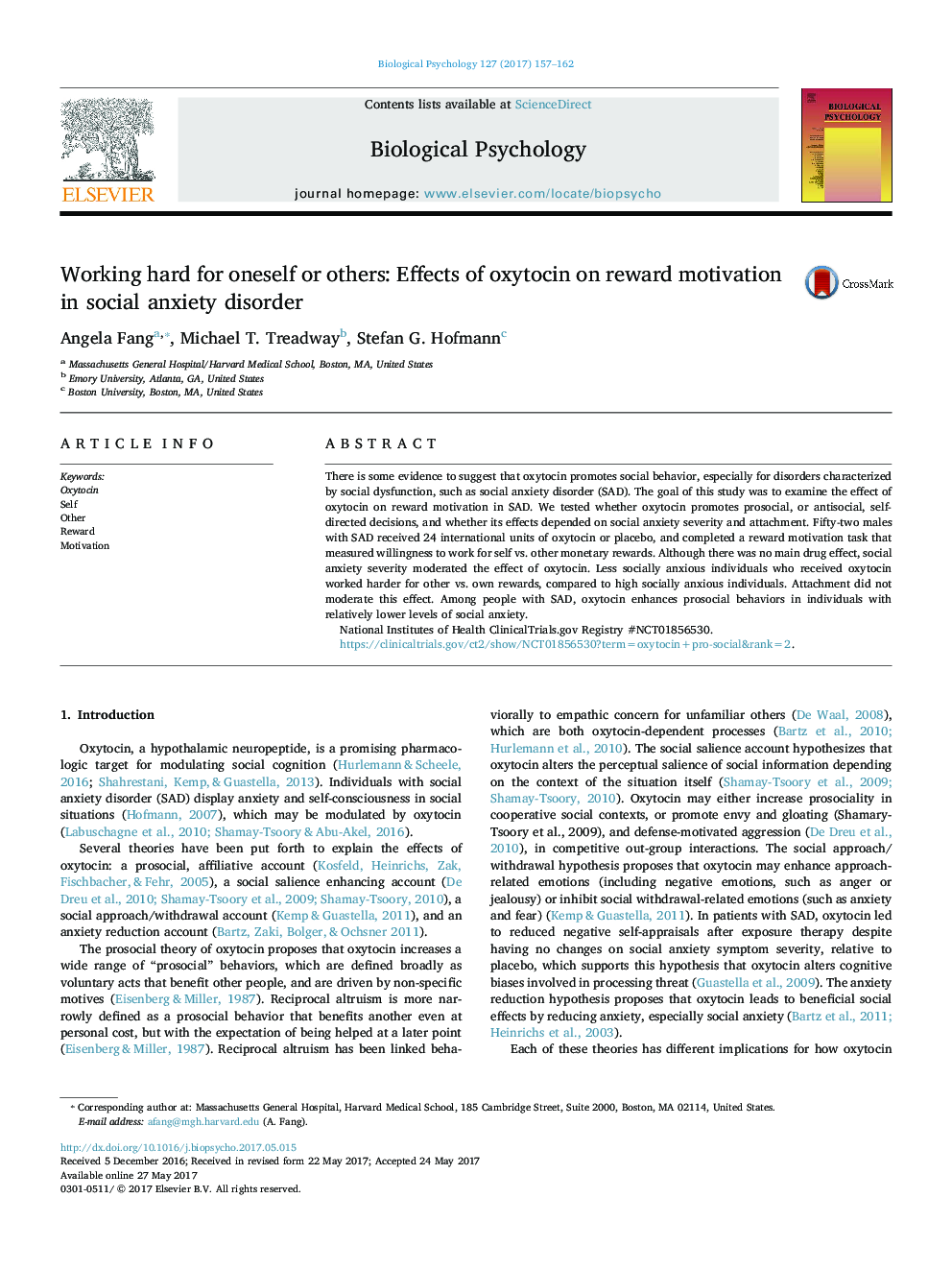| Article ID | Journal | Published Year | Pages | File Type |
|---|---|---|---|---|
| 5040488 | Biological Psychology | 2017 | 6 Pages |
â¢There was no main effect of oxytocin on reward motivation.â¢Those receiving oxytocin with less severe social anxiety worked harder for others.â¢Attachment did not moderate this effect.
There is some evidence to suggest that oxytocin promotes social behavior, especially for disorders characterized by social dysfunction, such as social anxiety disorder (SAD). The goal of this study was to examine the effect of oxytocin on reward motivation in SAD. We tested whether oxytocin promotes prosocial, or antisocial, self-directed decisions, and whether its effects depended on social anxiety severity and attachment. Fifty-two males with SAD received 24 international units of oxytocin or placebo, and completed a reward motivation task that measured willingness to work for self vs. other monetary rewards. Although there was no main drug effect, social anxiety severity moderated the effect of oxytocin. Less socially anxious individuals who received oxytocin worked harder for other vs. own rewards, compared to high socially anxious individuals. Attachment did not moderate this effect. Among people with SAD, oxytocin enhances prosocial behaviors in individuals with relatively lower levels of social anxiety.National Institutes of Health ClinicalTrials.gov Registry #NCT01856530.https://clinicaltrials.gov/ct2/show/NCT01856530?term=oxytocin+pro-social&rank=2.
